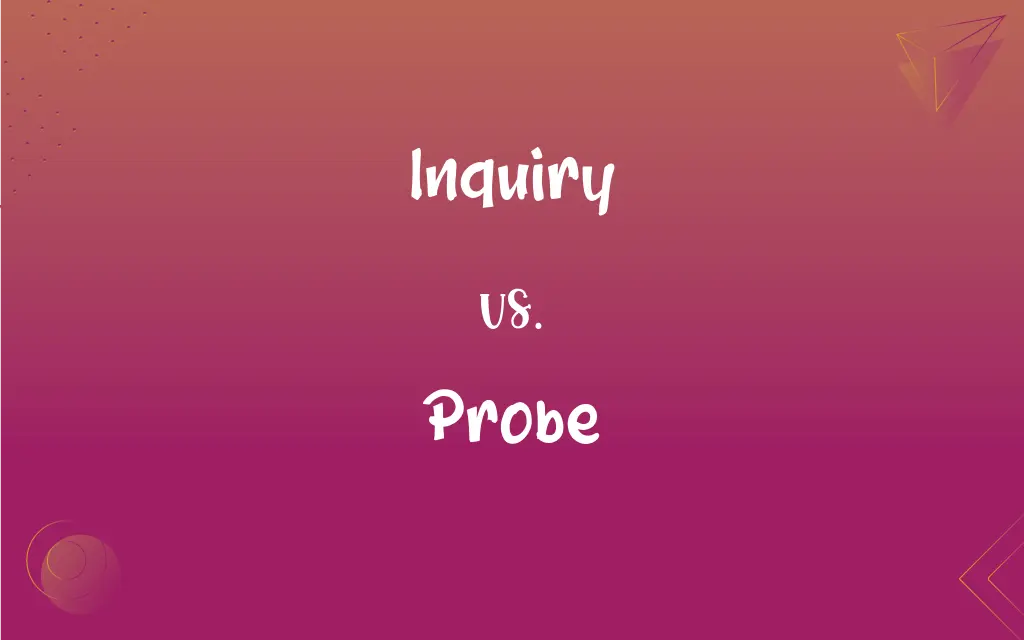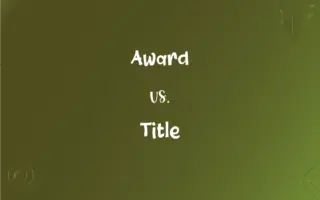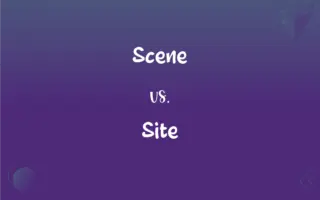Inquiry vs. Probe: What's the Difference?
By Janet White || Updated on November 29, 2023
Inquiry refers to the act of seeking information through questioning or research, while a probe is a thorough investigation, often implying a more intensive or invasive examination.

Key Differences
Inquiry typically involves asking questions or conducting research to gather information. It's often less invasive and can include academic, scientific, or casual questioning. Probe, on the other hand, suggests a deeper, more detailed investigation, often into a specific issue or problem.
An inquiry can be a request for information, where someone seeks to understand a topic or circumstance. Probes, conversely, are more targeted, usually implying a deeper dive into a subject, often to uncover hidden details or truths.
Inquiry is generally broader and can be exploratory, aiming to understand a concept or gather general information. A probe is more focused, typically used in contexts where detailed inspection or examination is required.
Inquiries can be informal or formal, ranging from casual questioning to structured research. Probes are often more systematic and methodical, associated with thorough investigations in scientific, technical, or legal contexts.
The tone of an inquiry can be neutral or curious, aimed at understanding or learning. The tone of a probe is often more serious, sometimes associated with scrutiny or the need to resolve an issue or answer a specific question.
ADVERTISEMENT
Comparison Chart
Purpose
To gather information or understand.
To investigate deeply or scrutinize.
Context
Broad, can be academic or casual.
Specific, often technical or legal.
Depth
Surface-level, general.
Intensive, detailed.
Method
Questioning, research.
Inspection, examination.
Connotation
Neutral, curious.
Serious, investigative.
ADVERTISEMENT
Formality
Can be informal or formal.
Usually formal and systematic.
Associated Fields
Education, general research.
Science, law, technical fields.
Inquiry and Probe Definitions
Inquiry
An act of asking for information.
Her inquiry into ancient history led to surprising discoveries.
Probe
A detailed inquiry.
The journalist's probe uncovered the truth behind the scandal.
Inquiry
An official investigation.
The police conducted an inquiry into the mysterious incident.
Probe
An exploratory device or tool.
The surgical probe was used to examine the wound.
Inquiry
A request for information.
The student's inquiry about the course requirements was promptly answered.
Probe
A thorough investigation.
The probe into the company's finances revealed discrepancies.
Inquiry
A systematic study.
The research team's inquiry into climate change produced significant data.
Probe
An act of searching or examining.
The scientist's probe into the data led to new theories.
Inquiry
An exploration of facts.
His scientific inquiry revealed new insights into the phenomenon.
Probe
A method of testing or exploring.
The probe of the new software showed its efficiency.
Inquiry
The act of inquiring
Engaged in scientific inquiry.
Probe
A slender, flexible surgical instrument used to explore a wound or body cavity.
Inquiry
A question; a query
There were many inquiries about the new tax rates.
FAQs
What is an inquiry?
An inquiry is a request for information or an investigation into a subject.
What does it mean to probe a situation?
To probe a situation means to investigate it thoroughly and in detail.
Can a probe be part of an inquiry?
Yes, a probe can be a part of an inquiry, especially if detailed examination is needed.
Is an inquiry always verbal?
No, inquiries can be conducted through research, reading, or other non-verbal methods.
What are some synonyms for probe?
Investigate, examine, scrutinize, inspect.
Can an inquiry be informal?
Yes, inquiries can be both informal and formal.
What’s the difference between an inquiry and a question?
An inquiry is broader and can involve multiple questions or research, while a question is a single request for information.
Can inquiries lead to formal investigations?
Yes, sometimes inquiries can lead to formal investigations if they uncover significant issues.
Is a probe always related to science or technology?
No, while often used in science or technology, probes are also used in other investigative contexts.
Are probes always serious?
While often serious, the context and purpose of a probe can vary.
What makes a probe different from a regular examination?
A probe is typically more thorough and detailed than a regular examination.
What is the outcome of an inquiry?
The outcome can be information, understanding, or resolution of a query.
What is a common context for an inquiry?
Common contexts include academic research, customer service questions, or general curiosity.
Is a probe always conclusive?
Not always; some probes may lead to further questions or investigations.
Are all inquiries formal?
No, inquiries can range from casual questions to formal investigations.
Are probes always physical tools?
No, probes can be metaphorical, referring to any method of detailed investigation.
Can anyone conduct an inquiry?
Yes, anyone can conduct an inquiry in a variety of contexts.
Can an inquiry be non-verbal?
Yes, inquiries can include non-verbal research like reading or observing.
What skills are important for conducting a probe?
Skills like attention to detail, analytical thinking, and thoroughness are important.
How does one decide when to use a probe?
A probe is used when detailed, thorough examination is necessary for understanding or resolving an issue.
About Author
Written by
Janet WhiteJanet White has been an esteemed writer and blogger for Difference Wiki. Holding a Master's degree in Science and Medical Journalism from the prestigious Boston University, she has consistently demonstrated her expertise and passion for her field. When she's not immersed in her work, Janet relishes her time exercising, delving into a good book, and cherishing moments with friends and family.
































































